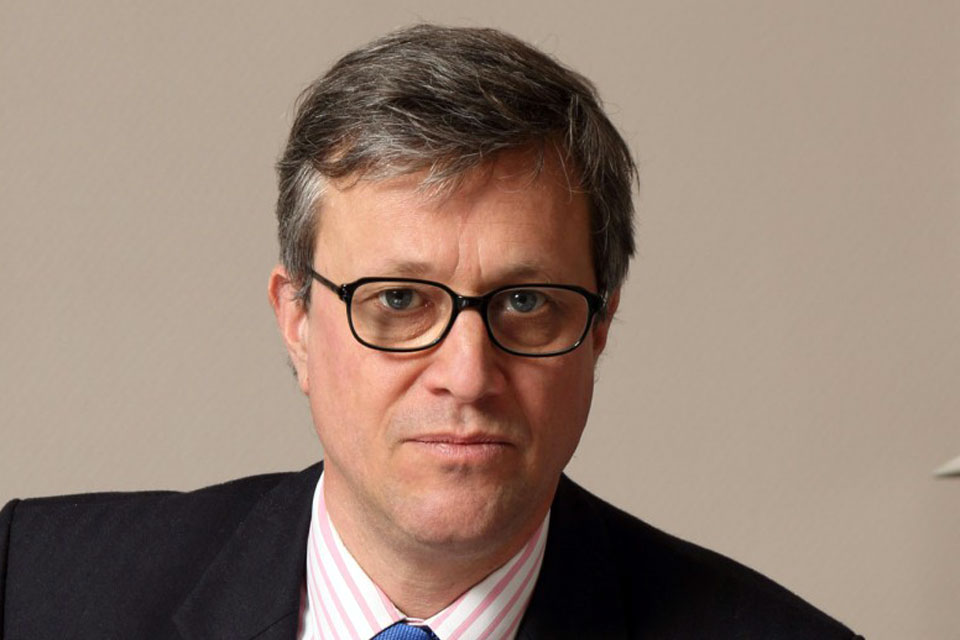UK is committed to eliminating violence against women and girls: Speech by Bruce Bucknell
Excerpts of the speech by the British Deputy High Commissioner Kolkata Bruce Bucknell at the ‘International Conference on Anti-Human Trafficking’ in Kolkata.

Thank you for agreeing to include us – the British Deputy High Commission in Kolkata – as a partner for this event today.
I congratulate Sister Monica Suchiang - Director, Kolkata Mary Ward Social Centre and her team for organising this two-day conference. And for bringing together participants from across India and overseas.
But I’m not happy that we are discussing this subject in the year 2017. It is an abhorrent crime.
Victims of human trafficking are subject to terrible mistreatment and exploitation. Those who engage in it don’t recognise the dignity or worth of human beings. People are not commodities.
We should bring to justice those who perpetrate these crimes and exploit other human beings, often at the most vulnerable points in their lives, for personal or commercial gain. We should not tolerate it.
It’s not just about individual human beings. Human trafficking erodes the security and cohesion of communities. It undermines the prosperity of nations.
Forced labour and human trafficking is a global problem. Traffickers respect neither borders nor jurisdictions. As such it requires a global response. It is shocking to say it but there are approximately 40 million victims worldwide.
This is not a problem for others – we estimate there are between 10,000-13,000 victims in the UK.
The UK Government is committed to the eradication of all forms forced labour and human trafficking by 2030, as unanimously adopted in the UN Sustainable Development Goals in 2015 (SDG 8.7).
The British Prime Minister has made tackling this issue a top foreign policy priority. She is advocating better international coordination to deliver commitments made under the UN Sustainable Development Goal.
Governments and international agencies should prioritise interventions and resources to tackle the issues and support victims.
Here in India, my government has supported a number of projects around these issues. They include:
-
paralegal training programme for 660 Dalit human rights defenders in Uttar Pradesh, Bihar, Telangana and Maharashtra
-
capacity building of law enforcement agencies when dealing with victims of Human Trafficking
-
The British Department for International Development has undertaken various programmes to support the empowerment of people who are vulnerable to trafficking and forced labour.
The Poorest Areas Civil Society programme (PACS) works through local civil society organisations to support over 9 million of the poorest people to access their entitlements, thereby reducing their risk of forced labour.
The Orissa Girls Incentive Programme supported nearly 1.3m disadvantaged adolescents (including over 600,000 girls) to stay in school and reduce their risk of early marriage and trafficking.
DFID’s regional programme with the ILO, Work in Freedom (WIF), supports safe migration and government capacity building at national and state level. Over 90,000 women have benefited from training to help them make informed migration decisions, and so reduce their risk of being trafficked from India, Nepal and Bangladesh.
In India, I know there is a draft Trafficking of Persons (Prevention, Protection and Rehabilitation) Bill, which would set up an organised crime investigative agency to rescue and rehabilitate victims of trafficking and investigate human trafficking cases. I hope that disagreements on the scope of the bill can be resolved soon.
Human trafficking often preys on the most vulnerable in society – that is women and girls.
Today also happens to be the International day on elimination of violence against women. Violence against women and girls is an issue that the UK is committed to eliminating.
It is also the first day of the UN-led 16 Days of Activism with the theme of ‘Leave no-one behind’.
What to do?
We need to continue to collaborate and cooperate with one another and together and end these abhorrent crimes once and for all.
We need to promote cooperation amongst the full range of stakeholders: the private sector, civil society, and law enforcement and other frontline agencies.
We need to improve understanding of the issues amongst the general public and amongst communities vulnerable to exploitation.
We need to work to ensure better victim safeguarding coordination to connect victims to appropriate support and reintegration services to reduce the risk of re-exploitation.
[SDG 8.7 – Take immediate and effective measures to eradicate forced labour, end modern slavery and human trafficking and secure the prohibition and elimination of the worst forms of child labour, including recruitment and use of child soldiers, and by 2025 end child labour in all its forms]